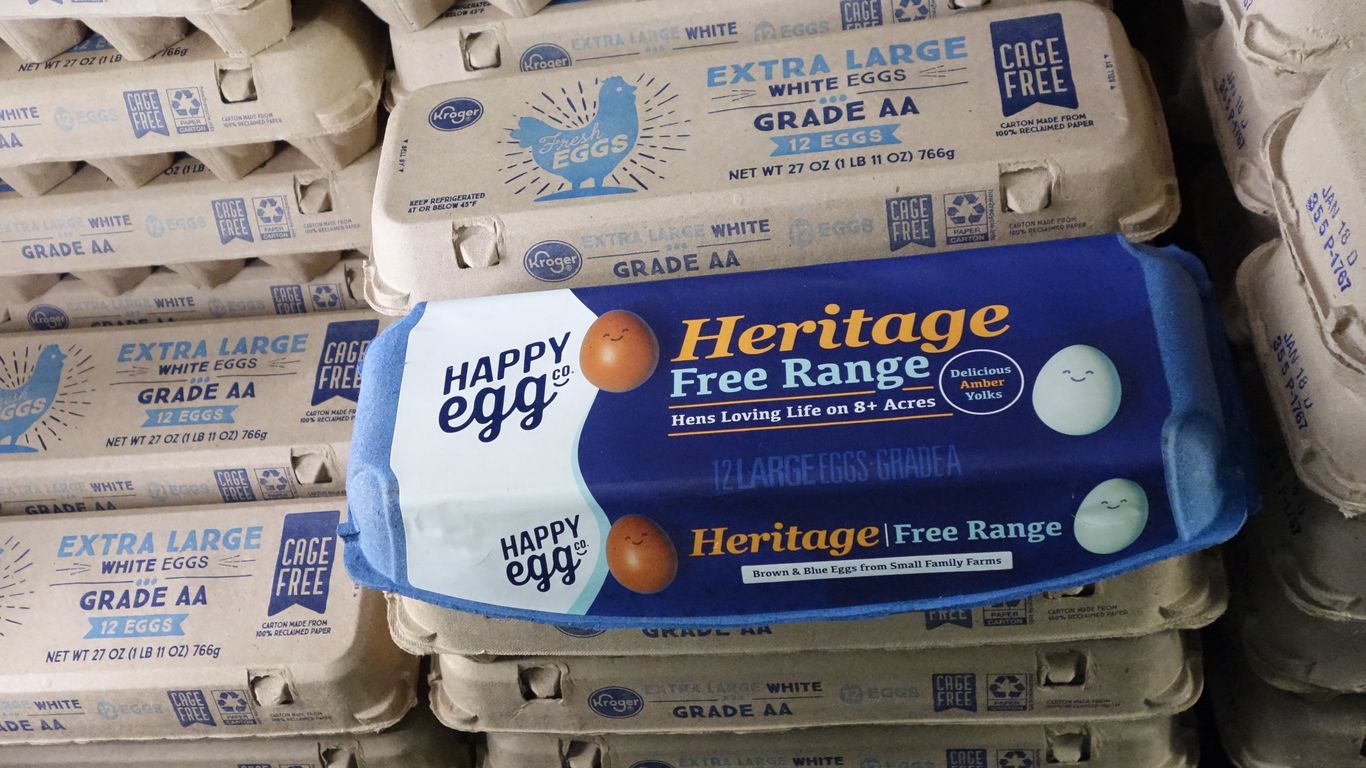Egg prices rose to a record high of $6.23 per dozen in March, according to U.S.
Bureau of Labor Statistics data released on Thursday. The big picture: President Trump claimed credit last month for a drop in wholesale egg prices as bird flu outbreaks that forced producers to cull millions of chickens and led to shortages waned and his administration moved to tackle higher prices by boosting egg imports.However, consumers don't typically immediately see wholesale price drops reflected at the grocery store, per Axios' Kelly Tyko and Nathan Bomey.

And eggs are in high demand over the Jewish holiday of Passover, which starts Saturday, and Easter, held on April 20 this year. This can drive prices higher.By the numbers: The price for a dozen grade A large eggs increased from $5.
90 in February to $6.23, per the BLS. In January, it was $4.
95 a dozen.Wholesale egg prices have fallen from an average of $6.55 per dozen on Jan.
24 to $3.26 last Friday, per Agriculture Department data.Between the lines: "In the same way that just because the barrel price of oil goes down does not mean that gas prices immediately go down, there's a delay here," said University of Arkansas agricultural economist Jada Thompson in a blog post this week.
"Retailers get to choose their own price, and they took a lot of losses when prices were exceptionally high," Thompson added."They may be saying, 'I've lost money over here, so I'm going to let what I have in stock go out at the price it currently is before I lower the price, to compensate for that earlier loss.'"Go deeper: Why food prices are still high, five years after COVID.
Egg prices rise to all-time highs ahead of Easter

Egg prices rose to a record high of $6.23 per dozen in March, according to U.S. Bureau of Labor Statistics data released on Thursday. The big picture: President Trump claimed credit last month for a drop in wholesale egg prices as bird flu outbreaks that forced producers to cull millions of chickens and led to shortages waned and his administration moved to tackle higher prices by boosting egg imports.However, consumers don't typically immediately see wholesale price drops reflected at the grocery store, per Axios' Kelly Tyko and Nathan Bomey. And eggs are in high demand over the Jewish holiday of Passover, which starts Saturday, and Easter, held on April 20 this year. This can drive prices higher.By the numbers: The price for a dozen grade A large eggs increased from $5.90 in February to $6.23, per the BLS. In January, it was $4.95 a dozen.Wholesale egg prices have fallen from an average of $6.55 per dozen on Jan. 24 to $3.26 last Friday, per Agriculture Department data.Between the lines: "In the same way that just because the barrel price of oil goes down does not mean that gas prices immediately go down, there's a delay here," said University of Arkansas agricultural economist Jada Thompson in a blog post this week."Retailers get to choose their own price, and they took a lot of losses when prices were exceptionally high," Thompson added."They may be saying, 'I've lost money over here, so I'm going to let what I have in stock go out at the price it currently is before I lower the price, to compensate for that earlier loss.'"Go deeper: Why food prices are still high, five years after COVID















